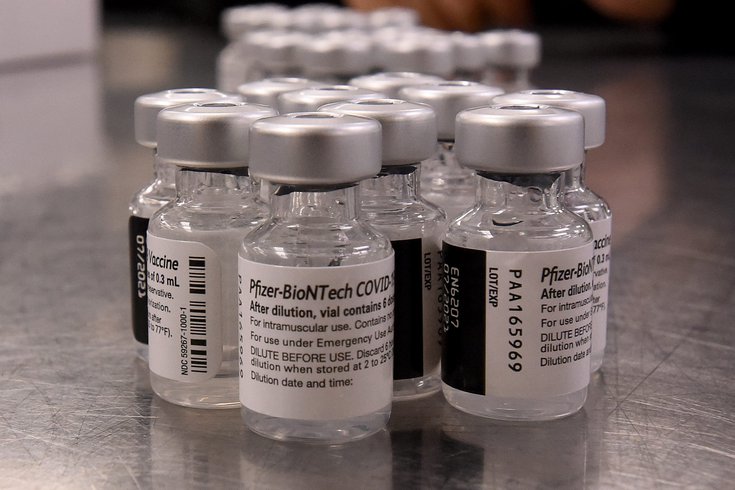
December 08, 2021
 Sara C. Tobias/The Advocate
Sara C. Tobias/The Advocate
Pfizer and BioNTech are working on an omicron-specific vaccine in case it is needed. For now, they said a booster shot appears to provide ample protection against the COVID-19 variant.
The omicron variant appears to partially evade the protection provided by the Pfizer-BioNTech COVID-19 vaccine, the two companies said Wednesday.
A booster dose of the vaccine, however, restores strong protection against it.
In a lab study, researchers found the booster dose offers the same level of antibody protection against the omicron variant as the primary vaccine series did against the original coronavirus and other variants.
However, they observed a 25-fold decrease in antibodies against omicron in blood samples from people who only received two doses. Yet, T-cell protection remained strong, meaning the original vaccine series still should prevent severe disease in people infected with the omicron variant.
"You may need to go get the third booster faster, and that’s something that the health authorities should consider very carefully and make their recommendations," Pfizer CEO Albert Bourla said Wednesday on NBC's "TODAY" show. "But clearly having two doses compared to nothing protects you way better than having nothing."
Pfizer and BioNTech are already working on an omicron-specific vaccine in case it is needed, the companies said.
The U.S. Centers for Disease Control and Prevention recommends that all adults get a booster shot six months after their second doses of the Pfizer or Moderna vaccines or two months after a single dose of the Johnson & Johnson vaccine.
Since the new variant was first identified, vaccine manufacturers have been scrambling to determine its ability to evade antibodies.
The data released by Pfizer and BioNTech is considered preliminary. It hasn't been peer-reviewed or published. But the results are very similar to those released by a South Africa research institute, which found a substantial reduction in neutralizing antibodies against omicron.
However, that analysis didn't include people who received booster doses. Notably, the study found five of six participants who had COVID-19 prior to vaccination produced stronger responses against omicron.
Moderna and Johnson & Johnson are conducting lab studies on the omicron variant and are expected to release results soon.
Scientists also are trying to determine how transmissible the omicron variant is and whether it causes more severe illness than the original virus and other variants. Early reports from South Africa suggest it spreads more easily than the delta variant but causes less severe illness than previous variants.